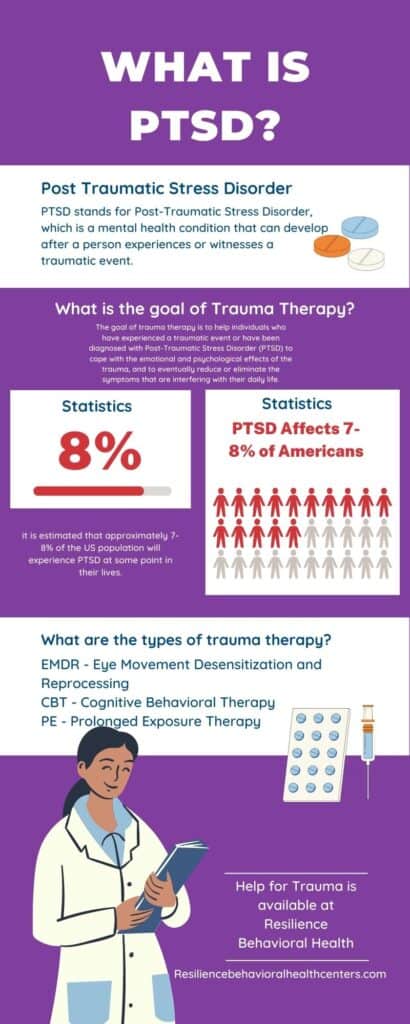The Rise of EMDR Therapy in Massachusetts: What You Need to Know
Imagine a world where the echoes of past trauma no longer reverberate in your present. Where distressing memories don’t hold you hostage, and triggers don’t send you spiraling. This, my friends, is the promise of EMDR therapy, and it’s gaining momentum in Massachusetts like never before.
A staggering 60.7% of adults in the United States have experienced at least one adverse childhood experience (ACE), according to the Centers for Disease Control and Prevention (CDC). These experiences, ranging from physical abuse to emotional neglect, can leave deep scars on the psyche, manifesting in anxiety, depression, PTSD, and other mental health challenges.
But what if there was a therapy that could help you rewrite the narrative of your past, not erase it? EMDR is an evidence-based approach that utilizes bilateral stimulation to activate the brain’s natural information processing system, facilitating the reprocessing of traumatic memories.
Today, we will discover why EMDR is experiencing such a surge in popularity in Massachusetts and what EMDR looks like in practice.
Why EMDR Is Quickly Gaining A Surge In Popularity?
Effectiveness
Research consistently demonstrates EMDR’s efficacy in treating PTSD and other trauma-related disorders. Studies show significant reductions in symptoms like flashbacks, nightmares, and emotional distress, often in fewer sessions than traditional talk therapy.
The tangible and measurable positive outcomes contribute to the therapy’s popularity among both mental health professionals and individuals seeking relief from trauma-related issues.
Precision
Unlike talk therapy, which can sometimes feel like revisiting the trauma in its entirety, EMDR focuses on specific memories and targets them for reprocessing. This precision makes the therapeutic process more manageable and less overwhelming for individuals.
By addressing specific memories associated with distress, clients can experience targeted healing without the need to delve into the entirety of their traumatic experiences.
Empowerment
EMDR empowers individuals to take control of their healing journey. They become active participants rather than passive treatment recipients by engaging in bilateral stimulation. This sense of agency can be particularly empowering for those who may have felt helpless or out of control in the face of their traumatic experiences.
On top of that, EMDR fosters a collaborative therapeutic environment, enhancing the individual’s sense of control and autonomy.
Accessibility
As the demand for EMDR grows, so does the availability of qualified therapists in Massachusetts. Several organizations, including the EMDR International Association (EMDRIA), offer resources to help individuals find a therapist trained in this modality.
The increasing accessibility of EMDR-trained therapists in the state ensures that more individuals can benefit from this therapeutic approach. This accessibility factor contributes significantly to the therapy’s rising popularity, as individuals can access the treatment more readily and conveniently.
Holistic Approach
EMDR therapy takes a holistic approach to healing, addressing not only the cognitive aspects of trauma but also incorporating sensory and emotional elements. Integrating bilateral stimulation engages multiple facets of the brain, facilitating a more comprehensive and nuanced resolution of traumatic memories. This holistic perspective appeals to individuals seeking a well-rounded therapeutic experience in Massachusetts.
Moreover, EMDR therapy can be seamlessly integrated with other therapeutic modalities, offering mental health professionals in Massachusetts a versatile tool to enhance their existing practices.
Neuroscientific Validation
Advances in neuroscience have provided insights into the neurobiological underpinnings of trauma and how EMDR influences neural pathways. Neuroscientific validation adds a layer of credibility to the therapy, attracting mental health professionals and clients in Massachusetts.
Additionally, fMRI studies have shown changes in brain activity during and after EMDR sessions. These studies indicate alterations in the areas of the brain associated with memory processing, emotion regulation, and stress response.
Addressing Common Doubts About EMDR Therapy Massachusetts
While Eye Movement Desensitization and Reprocessing therapy has gained popularity in Massachusetts, it is common for individuals to harbor doubts or concerns about its effectiveness and unusual nature.
Here, we address some common doubts and provide clear explanations to address them:
Unusual Nature of EMDR
Doubt: EMDR’s use of bilateral stimulation, such as side-to-side eye movements, may seem unconventional or peculiar.
Explanation: The bilateral stimulation in EMDR is a deliberate and structured technique based on research-backed principles. It is designed to engage both brain hemispheres, promoting the processing of distressing memories.
While it may appear unusual, the effectiveness of this approach is supported by empirical evidence and neuroscientific studies showcasing changes in brain activity during EMDR sessions.
Perceived Lack of Scientific Backing
Doubt: Some individuals may question the scientific validity of EMDR.
Explanation: EMDR has garnered substantial empirical support over the years. Numerous studies have demonstrated its efficacy in treating conditions like PTSD, anxiety, and trauma-related disorders.
Neuroscientific research, including functional MRI studies, provides objective evidence of the therapy’s impact on brain function. EMDR is endorsed by reputable organizations, such as the World Health Organization (WHO) and the American Psychological Association (APA), further validating its scientific foundation.
Concerns About Revisiting Trauma
Doubt: There might be apprehensions about EMDR involving the revisiting of traumatic memories, potentially leading to increased distress.
Explanation: EMDR is not about dwelling on traumatic experiences in their entirety. The therapy focuses on specific memories, using bilateral stimulation to facilitate the brain’s natural healing processes. The controlled and targeted approach minimizes the risk of overwhelming distress. Therapists are trained to create a safe environment, ensuring individuals feel supported throughout the process.
Skepticism Regarding Quick Results
Doubt: Some may be skeptical about the reported quick results of EMDR compared to traditional talk therapy.
Explanation: The efficiency of EMDR is supported by research showing significant symptom reductions in a relatively short period. The targeted nature of the therapy, addressing specific memories, contributes to its effectiveness.
While individual responses may vary, many individuals in Massachusetts and globally have reported substantial improvement in symptoms within a shorter timeframe than other therapeutic approaches.
Cultural Sensitivity
Doubt: Concerns may arise regarding the cultural sensitivity of EMDR, especially for individuals from diverse backgrounds.
Explanation: EMDR’s flexibility allows therapists to adapt the approach to cultural nuances. Therapists in Massachusetts are trained to be culturally sensitive, ensuring that the therapy aligns with the unique values and experiences of individuals from different backgrounds. The adaptability of EMDR contributes to its acceptance and effectiveness across diverse cultural contexts.

What Does EMDR Look Like in Practice?
- History taking and target identification: You and your therapist will discuss your past experiences and identify specific memories that are causing you distress.
- Preparation and resource building: You’ll learn coping mechanisms and grounding techniques to help you manage difficult emotions during the reprocessing phase.
- Desensitization: This is where the bilateral stimulation comes in. As you focus on the targeted memory and its associated emotions, your therapist will guide you through eye movements, tapping, or sounds to activate the brain’s information-processing system.
- Integration and closure: After the desensitization phase, you can integrate the reprocessed memory into your overall narrative and develop a more positive perspective on your past.
Final Words
The road to healing is rarely linear, and EMDR is not a magic bullet. However, for many individuals struggling with trauma, it has become a beacon of hope, offering a path to reclaim their lives and build a brighter future.
If you’re curious about EMDR therapy and how it might benefit you, here are some resources to get you started:
- EMDR International Association (EMDRIA)
- Find an EMDR therapist in Massachusetts
- National Center for PTSD
Remember, you are not alone in your journey. With the proper support and resources, including EMDR therapy, you can overcome the challenges of trauma and build a life filled with hope and resilience.
Reach out to Resilience Behavioral Health to have a friend and qualified care as you go through your EMDR journey.
Call 888.401.1179 to get started.


